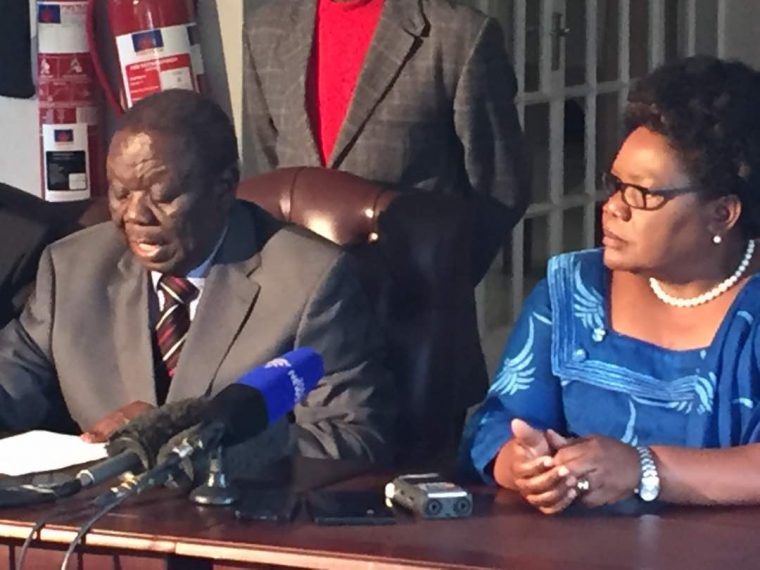On 19 April, two of Zimbabwe’s most prominent politicians agreed to join forces to unseat President Robert Mugabe.
With next year’s elections almost in sight, former Prime Minister Morgan Tsvangirai and former Vice-President Joice Mujuru signed an agreement to form an opposition coalition.
They shook hands and smiled at each other before making some comments.
“We have taken the first step to bring all Zimbabweans under one roof so that we can work together to remove the unmitigated repression and misgovernance that pervades our lives”, said Tsvangirai.
Mujuru explained: “It took about six months to discuss the coalition. We know your expectations are very high…We are going to deliver a new Zimbabwe.”
This alliance has been hailed as a momentous development in the country’s politics.
One reason for this is that it brings together two powerful figures that have historically been on opposing sides.
As the leader of the main opposition, Tsvangirai has been threatened, arrested and attacked by the government for nearly two decades.
Meanwhile, Mujuru, who was a close ally and deputy of Mugabe from 2004 until she was forced out in 2014, was a central figure in the very government authorising that repression.
The fact that they have now shaken hands and joined forces is significant.
But Tsvangirai’s Movement for Democratic Change (MDC) and Mujuru’s National People’s Party (NPP) are not the only parties in the coalition.
Welshman Ncube’s Movement for Democratic Change-Ncube (MDC-N) and Tendai Biti’s People’s Democratic Party (PDP) have also joined the alliance.
Interestingly, Ncube and Biti have a fraught history with the MDC too, both having occupied the position of secretary-general in the party before each falling out with Tsvangirai and going their separate ways.
Outside the party political system, activist groups such as #ThisFlag and #Tajamuka, who led mass protests in recent months, have also formed a coalition to take on Mugabe.
These groups are believed to support the opposition coalition, giving it the sense of being not just an association of politicians but broad-based movement.
Continued next page
(165 VIEWS)







0 Comments